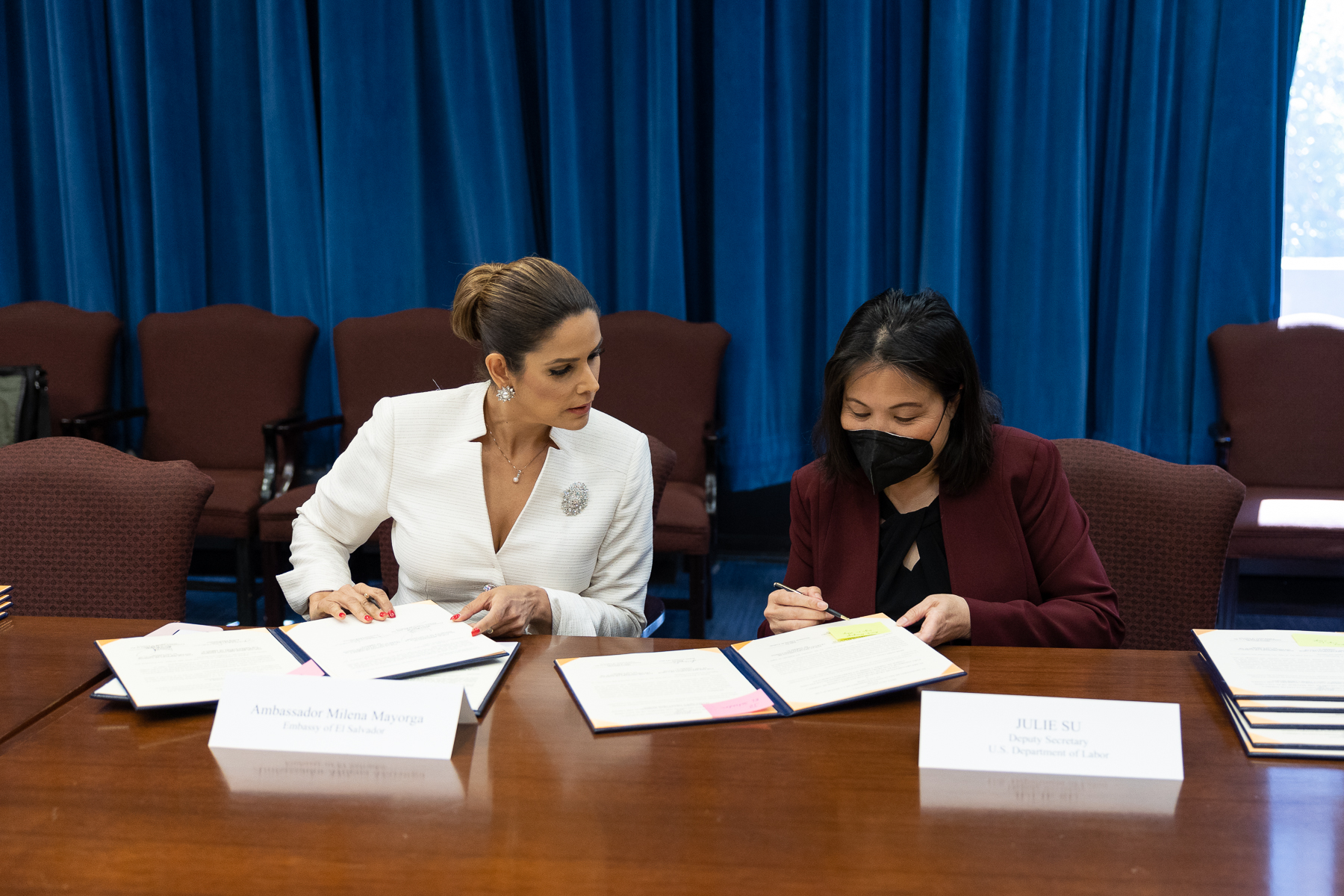
Julio Colby is a student at Harvard Law School.
In this Weekend’s News & Commentary: Julie Su is facing multiple challenges to her continued leadership of DOL; and DOL is facing budget cuts from Congress.
On Thursday, House Republicans introduced a bill that would prevent Julie Su from serving indefinitely as acting Secretary of Labor. The Department of Labor Succession Act would apply the same time limits for government officials set out in the Federal Vacancies Reform Act (FVRA) to the Deputy Secretary position. Su has been heading DOL since Secretary Marty Walsh stepped down on March 11. But because she assumed that role under the statute that created the Deputy Secretary position — which states that the Deputy Secretary shall perform the duties of the Secretary until a replacement is appointed — President Biden has argued that the FVRA does not apply and that Su can lead the agency indefinitely. House and Senate GOP members sent a letter to President Biden and the Government Accountability Office earlier this month suggesting that Su should be serving under the FVRA. But recent reporting suggests that, lacking the needed support of Democratic Senators Joe Manchin and Krysten Sinema, the White House appears ready to “move on” from Su’s nomination and leave her in the role of acting Secretary indefinitely.
Su also faces potential legal challenges from business groups who argue that her role as acting head of the agency is unconstitutional. On Monday, Flex, the trade association which represents Uber, Lyft, and DoorDash, sent a letter to President Biden asking that DOL refrain from finalizing worker classification rules until the agency confirms a permanent Secretary of Labor. The group warned that “any action taken to finalize the proposed worker classification regulation under Ms. Su’s current leadership as Acting Secretary would circumvent the Senate’s constitutional role of providing advice and consent on nominees.” Critics of Su’s role point to Justice Clarence Thomas’ concurrence in NLRB v. Southwest General Inc., in which he noted that the FVRA raised “grave constitutional concerns” because the Appointments Clause of the Constitution requires that the President appoint officers with the advice and consent of the Senate. But some legal scholars remain skeptical of any challenges because that case involved an acting official not confirmed to any position, whereas Su has already been confirmed as Deputy Secretary and is carrying out duties germane to that position.
On Thursday, the Senate Appropriations Committee voted to reduce slightly DOL’s funding for the next fiscal year. The committee voted 26-2 to appropriate $13.5 billion in discretionary funding to the agency, a $300 million cut from the previous fiscal year and more than $1 billion short of what President Biden had requested. The Senate’s bipartisan package was limited in part by the debt ceiling agreement’s funding constraints, but it is an improvement from the 29% cut proposed by Republicans in the House. The package would freeze the NLRB’s funding from last year — already just enough to “keep the lights on” — and advocates say more robust funding will be necessary to keep up with the recent rise in union petitions. The bill would also provide $290 million in funding for apprenticeships, and a $4.5 million dollar increase to DOL’s Wage and Hour Division to enforce child labor laws, a priority for the Biden administration. The bill will have to be reconciled with the House version, which has yet to be marked up, by September 30 in order to avoid a government shutdown.






Daily News & Commentary
Start your day with our roundup of the latest labor developments. See all
June 30
Antidiscrimination scholars question McDonnell Douglas, George Washington University Hospital bargained in bad faith, and NY regulators defend LPA dispensary law.
June 29
In today’s news and commentary, Trump v. CASA restricts nationwide injunctions, a preliminary injunction continues to stop DOL from shutting down Job Corps, and the minimum wage is set to rise in multiple cities and states. On Friday, the Supreme Court held in Trump v. CASA that universal injunctions “likely exceed the equitable authority that […]
June 27
Labor's role in Zohran Mamdani's victory; DHS funding amendment aims to expand guest worker programs; COSELL submission deadline rapidly approaching
June 26
A district judge issues a preliminary injunction blocking agencies from implementing Trump’s executive order eliminating collective bargaining for federal workers; workers organize for the reinstatement of two doctors who were put on administrative leave after union activity; and Lamont vetoes unemployment benefits for striking workers.
June 25
Some circuits show less deference to NLRB; 3d Cir. affirms return to broader concerted activity definition; changes to federal workforce excluded from One Big Beautiful Bill.
June 24
In today’s news and commentary, the DOL proposes new wage and hour rules, Ford warns of EV battery manufacturing trouble, and California reaches an agreement to delay an in-person work mandate for state employees. The Trump Administration’s Department of Labor has advanced a series of proposals to update federal wage and hour rules. First, the […]